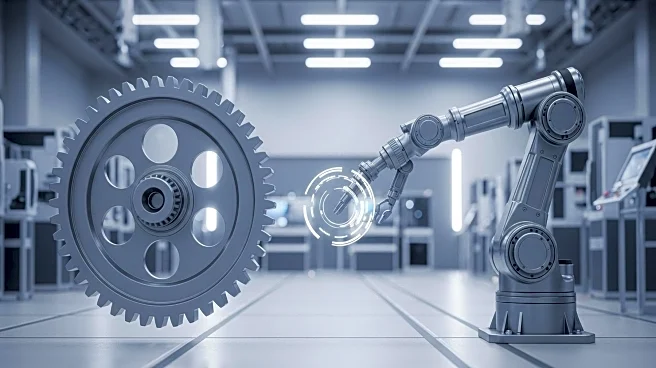What's Happening?
The U.S. manufacturing sector is advocating for pro-growth policies to bolster its global competitiveness. The industry, particularly the automotive aftermarket, is a significant contributor to the U.S. economy, accounting for $435 billion in annual consumer spending and employing nearly 2% of the workforce. The sector faces challenges such as the need for long-term trade policy certainty, tariff reprieves for essential equipment and raw materials, regulatory reform, and workforce development. The recently enacted One Big Beautiful Bill Act (OBBA) has reinstated the R&D first-year expense provision, providing a level playing field for manufacturers to invest in growth. However, further policy changes are necessary to support reshoring operations and enhance the sector's competitiveness.
Why It's Important?
The push for pro-growth policies in the U.S. manufacturing sector is crucial for maintaining and enhancing its global competitiveness. The automotive aftermarket plays a vital role in the economy, supporting millions of vehicles and providing essential transportation services, especially in areas lacking mass transit systems. The sector's ability to reshore operations and invest in innovation is hindered by current trade policies, tariffs, and regulatory burdens. Addressing these issues can lead to increased investment, job creation, and economic growth. The OBBA's provisions for R&D and workforce development are steps in the right direction, but comprehensive policy reform is needed to ensure the sector's long-term success.
What's Next?
Manufacturers are calling for further policy changes to support reshoring efforts and enhance competitiveness. These include establishing long-term trade policy certainty, providing tariff reprieves, and implementing broad regulatory reform. Workforce development is also a priority, with efforts needed to change perceptions of manufacturing jobs and provide education and training for high-tech roles. The OBBA has made strides in supporting technical education and job training, but federal efforts are required to raise awareness of these career pathways. The sector's future depends on the implementation of pro-growth policies and realistic expectations for investment timelines.
Beyond the Headlines
The call for pro-growth policies in the U.S. manufacturing sector highlights deeper implications for the economy and society. The sector's ability to reshore operations and invest in innovation is crucial for maintaining its global competitiveness and supporting economic growth. Regulatory reform and workforce development are essential for creating a favorable environment for manufacturers to thrive. The OBBA's provisions for R&D and technical education are positive steps, but comprehensive policy changes are needed to address the sector's challenges. The future of U.S. manufacturing depends on the implementation of these policies and the sector's ability to adapt to changing global dynamics.









